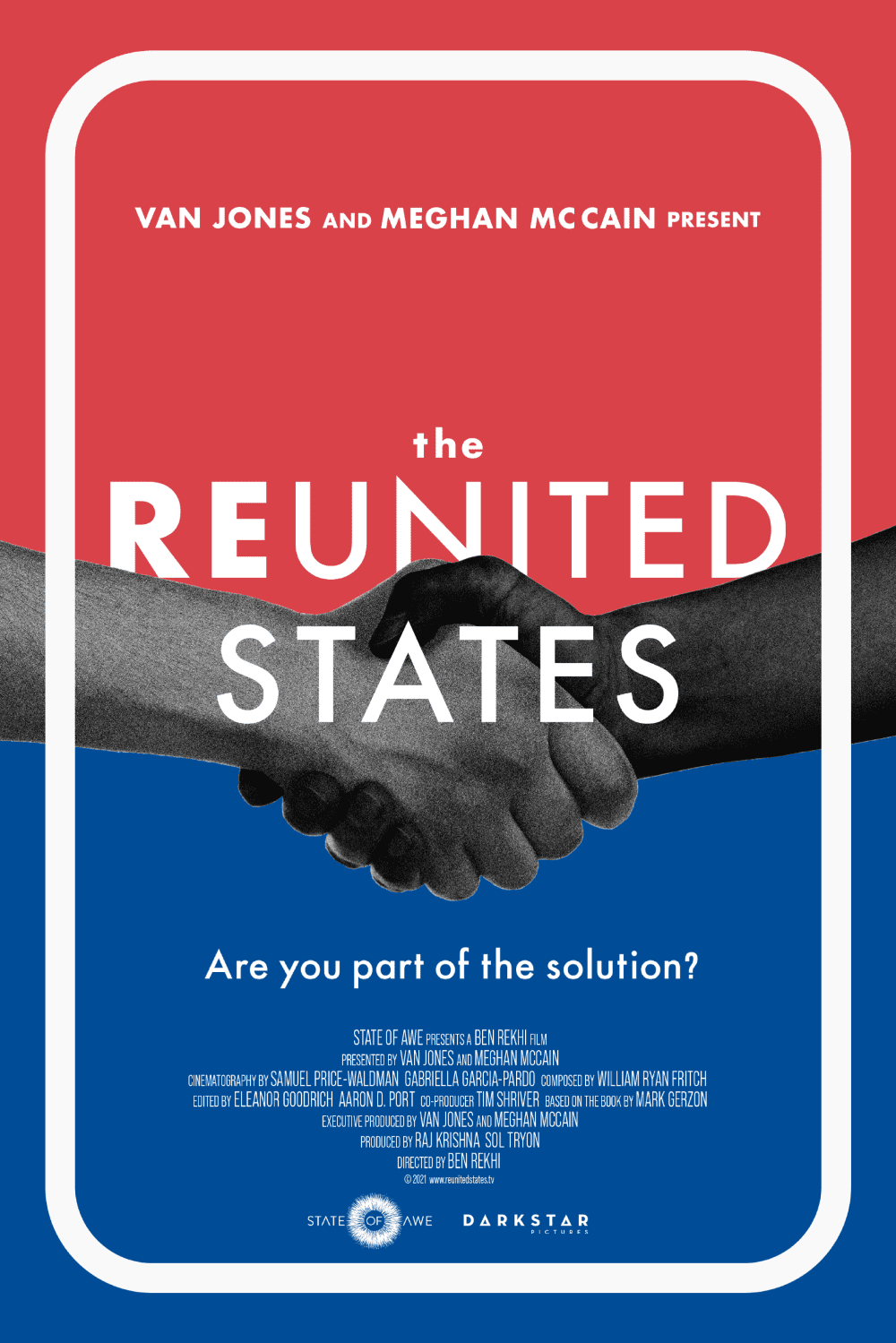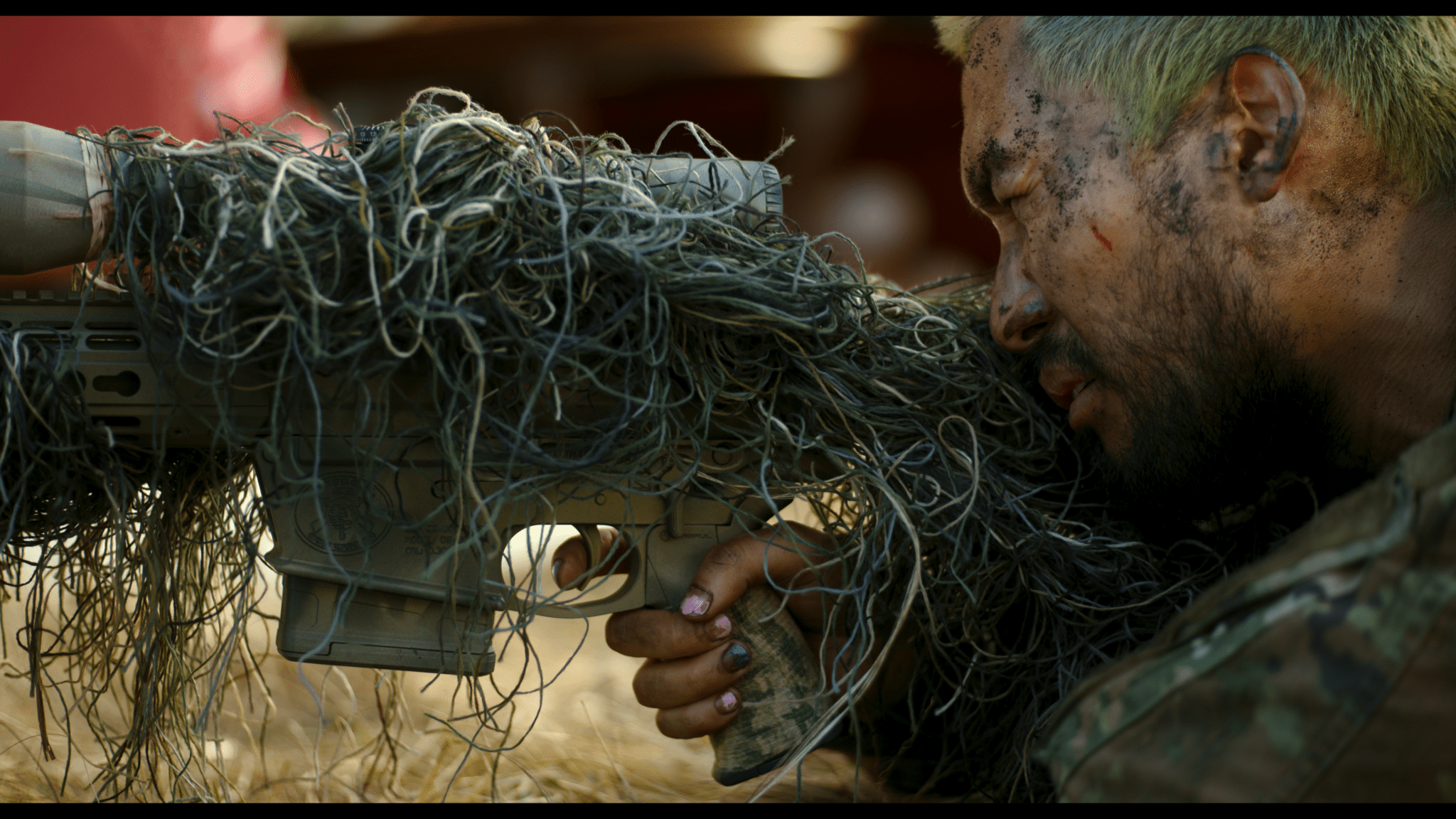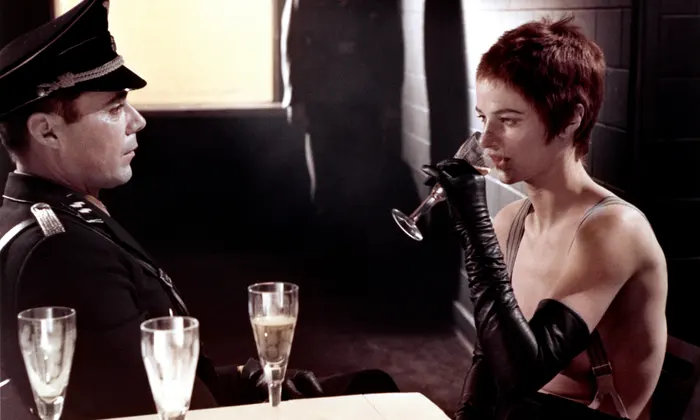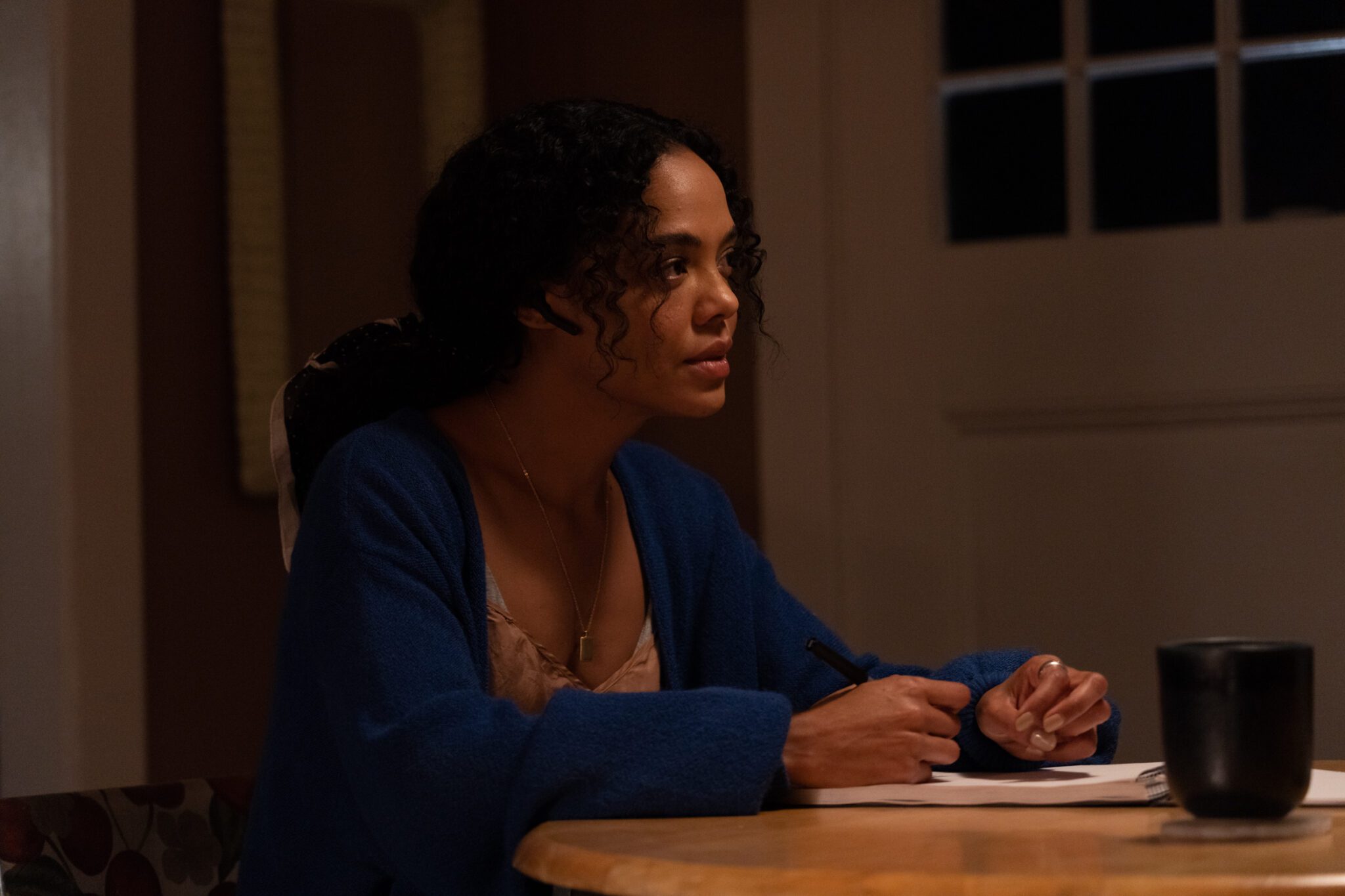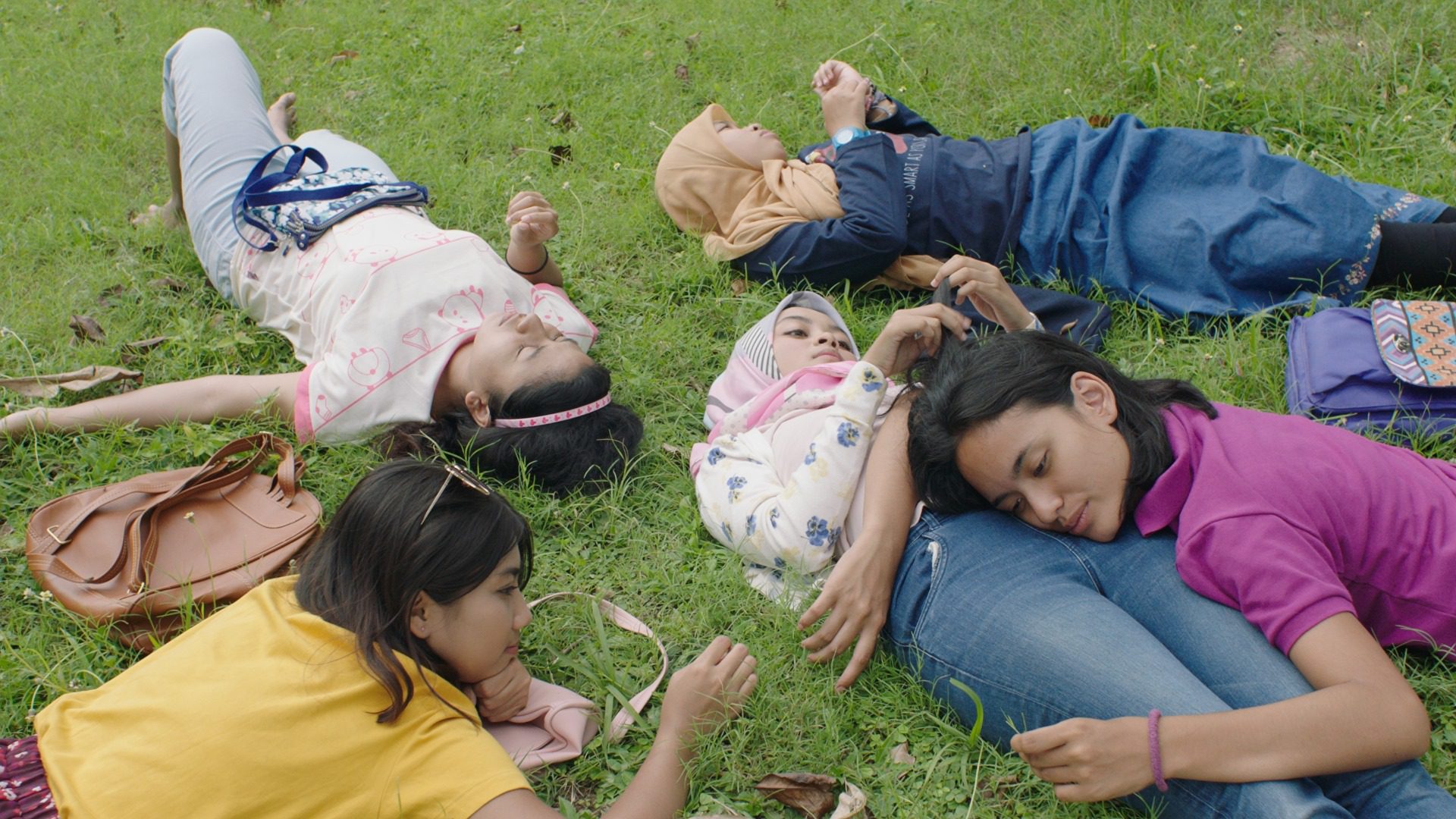I recently had the opportunity to talk via Zoom with The Reunited States director Ben Rekhi, and two of the film?s subjects, David and Erin Leaverton, who took a year to travel the US and talk with people about our divisions. For more on the film, see the Screenfish review or visit the film?s website to view the trailer. The film is now available an VOD.
Ben, where did you start in putting this film together and gathering the people for the different perspectives you wanted to get?
Ben Rekhi: I started this film about two and a half years ago, when I saw Susan Bro giving a talk. I was really struck by the fact that she was on the front lines of division and had lost a child to the violence, but she was able to come out the other side and talk about the need for conversation to avoid further violence. It really struck me that this was someone who had a voice of reason in a time when everyone was shouting at each other. She also had the moral authority to do that because she had suffered so publicly this loss. So, I approached her and I said ?I don?t know how or when, but I want to be a part of helping to tell your story, because I think it can really help other people at this time. There?s a lot of uncertainty about what?s happening in politics and you have this clarity to articulate it from the heart.? She, after a few conversations, allowed me to follow her with the camera and start filming. That was the beginning of the film.
The second piece of that was meeting Mark Gerzon, the author of the book The Reunited States of America. I?d come up with the title thinking it was pretty original, but when I Googled it I realized someone already had that title and written a book about it, but it was also on the same topic. Mark had been studying polarization for thirty years and had this wisdom that was relevant for those of us who only woke up to it over the last several years. I met him and he introduced me to the other three storylines. I said I want to follow someone on election day in the midterms, and he said Greg Orman. I wanted to understand what young people can do about division, he told me about Steven Olikara. He called me out of the blue one day and said, ?In all my years of doing this work, I?ve never come across anything as extraordinary as this family, the Leavertons, that are in an RV right now crisscrossing the country trying to find out what?s dividing us.? So I called them and as soon as I heard them speak, I was struck by their wisdom and clarity about what they had discovered. And especially being from a more conservative background and being willing to travel outside of their bubble and outside their comfort zone, in black community, in native reservations, in border towns. It really captured the human side of division because of these face-to-face encounters. To hear them really let people?s stories in and have a heart connection, it?s really emotional. It?s not easy. You?re hearing some tragic stories, that helps transform how you see. Not just as individuals but entire communities of people.
The film wants to show optimism about the possibility of overcoming the divisions the country is facing. How did that optimism hold up for each of you as the Jan 6 assault on the Capitol took place?
Erin Leaverton: That was a hard day. I think for anybody who desires to see our country divided, even if it didn?t diminish your optimism, it?s grieving to see these things with your eyes and to behold what we?re willing to do to one another.
David Leaverton: For me it was a very predictable outcome of the path we?ve been on for a long time. This is a path that?s pretty natural when you begin to dehumanize, when you begin to otherize, us versus them, good versus evil. These are some of the natural things that are going to happen. It didn?t diminish my hope in our future from the stand point of ?is all hope lost because people stormed the capital?? No, but I believe it shows me the importance of the work of peacemaking, of bridge building, because people?s lives are being lost in this struggle.
BR: I was pretty surprised and shocked. I think that people expected violence to breakout around the election and when the results came?at voting stations, maybe in the streets. So there was kind of a collective sigh of relief when that didn?t happen. Like ?Oh my God, our democratic institutional held up. People didn?t result to violence.? So when it happened at the beginning of the year, especially on the steps of the Capitol, attempting to kill Congressmen, I never would have seen that coming. It was a turning point that has made things harder in this field because, even for myself, I?ve been really trying to build bridges and this is going to make it harder, but have I also been missing blind spots about how deep this goes? So it?s forced me to do a lot of self-reflection. The distinction that has been helpful for me is that this was a small group of people?not small but several thousand, compared to several tens of millions?that would condone this, while most people would not. That distinction is important, but it?s harder to make that distinction for a lot of people. Right now, it?s kind of been a point of no return for a lot of people that you cannot get along with the lies. You?re an idiot if you think you can. In that regard we are in uncharted territory. But personally, it has not shaken my optimism this as we move forward. It shows the depth and the long game that it?s going to take to do that.
On a more positive side, did you see the Jeep commercial with Bruce Springsteen in the Superbowl?
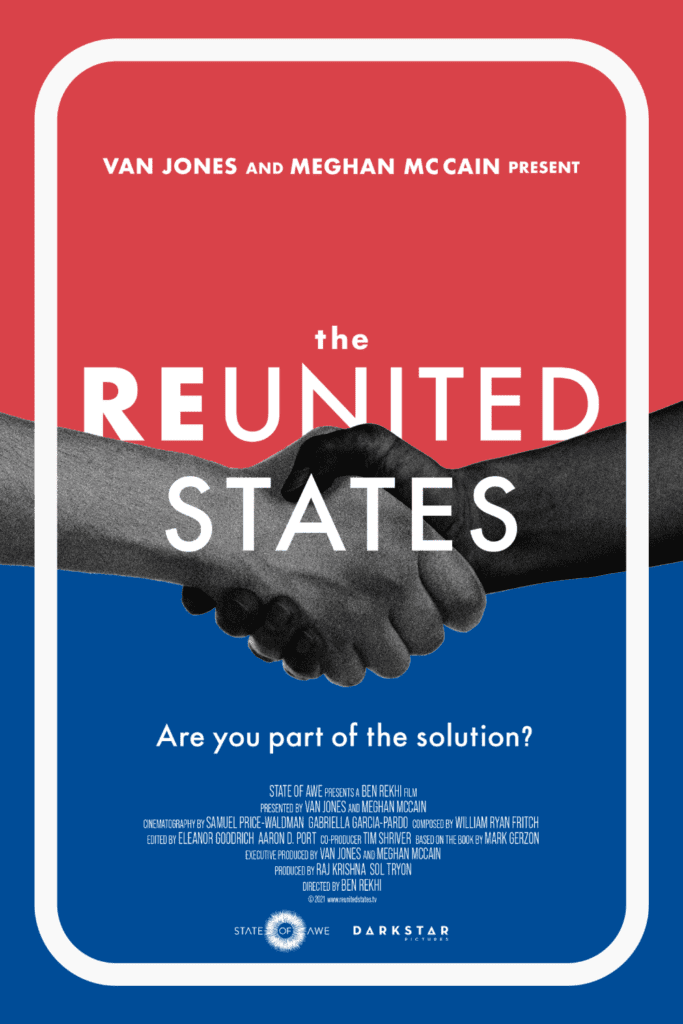
BR: What a coincidence! What luck! It?s the right place, right time. You can?t buy that kind of messaging.
DL: I can?t believe they used the words ?The ReUnited States of America?. Of all the things that they could have put on there. It?s just wild. Who doesn?t like Bruce Springsteen? That?s pretty awesome. It was a great commercial. What I felt was that there?s a market for healing. There is a market for?
EL: ? common ground, finding a place where you can meet.
DL: That was encouraging to me that this isn?t kind of a splinter group of us weirdos talking about this stuff. These are kind of major iconic American brands that see the importance of this conversation.
David and Erin, a good part of the film is your journey, not just physically, but ideologically. How would you characterize that personal journey?
DL: I was blind, but now I see.
EL: I would say I was blind, but now I am starting to see.
DL: That?s probably more accurate.
EL: And that doesn?t mean I was a Republican and now I?m almost a Democrat. There seems to be a lot of confusion around like a political conversion taking place by leaving your bubble and traveling all fifty states. We abandoned our identities as Republicans because we found out that no one can be summed up in a political ideology. Humans are too beautiful and too complex and too infinitely valuable to be summed up in such overly simplistic term. So that?s what we mean by we?re no longer Republicans, is that we now are beginning to see we?ve come into a deeper understanding of the beauty of our fellow human beings.
How much resistance did you run into trying to find people to talk together?
DL: About the only resistance we really found was from our fellow conservatives. That was really surprising to us. We rarely found, I think I can count them on one hand, resistance from people who were kind of outside of my tribe. When we tried to connect with people of our own tribe, or our former tribe, whatever you want to call it, did we find that kind of level of resistance. I think there something that when you kind of step out against the team, it?s something really sensitive, because so many of us have identified in this country by our political affiliations. And if you come from us and step outside of that, boy, it?s kind of like the unforgiveable sin.
EL: We were upsetting the apple cart of our upbringing, and it made it very hard to stick your toe back in and say, ?Can we talk? We have some questions.? We had a lot of resistance there. It was really interesting and surprising at the time.
What do you see as the foundation for the division we face?
DL: That was so much of our focus, I think. We started this journey thinking that the problem in America was that we were politically divided. That was really our hypotheses, that if we can just go to different parts of the country and host a dinner for a few Republicans and a few Democrats we could kind of see each other as human, important, and realize our differences aren?t really that big of a deal, and by the time dessert hit we would kind of heal that divide. What we realized was kind of our political divisions were a symptom of something a whole lot deeper. So for us, along this journey, was constantly asking this question: how did we get this way? Going deeper and deeper. What?s causing this? What?s causing that? And it led us back before the founding of the country. It led us into the understanding of the rise of Christendom and colonization and it got into our story of whose land do we stand upon today and how was that land acquired? I think when you build something on land that was gained often through the shedding of innocent blood, whatever house you build upon that foundation is going to have a tough time making it. So for me, our solution isn?t to fix the brokenness of the last two or three presidencies when we?ve gotten divided, but I really think if we want to heal this land, we need to go into the very foundations of the building blocks of the United States of America and really look at those. ?How did we come to be the good, the bad, and the ugly?? through a process of acknowledgement and truth, through a process of justice and conciliation. I think there?s a journey to healing. It?s not an easy and it?s not a short one.
BR: I would echo that, that the foundations of the country were built on genocide of native peoples and slavery. So, there?s kind of a fundamental split between what the ideals of our founding fathers and documents were, and the contradiction of what was actually happening. On the political differences, it seems over the last forty years that we?ve seen a steady rapid polarization increasing. A lot of that has to do with the end of the cold war and the loss of a common enemy that we used to have. This kind of superpower that was our existential threat untied us together, and once we lost that external enemy, we turned to our enemies inside. Then on our same side our policy and democracy reform has been slow to keep up with the changes. So a lot of political leaders are incentivized to move to the extremes to win elections and win primaries. There?s sort of a coupling of all these things that has created the atmosphere that we?re in now. The question is there is emergency crisis management?how do we put out the house that?s on fire??while we also think of longer-term solutions.
What are the next steps you will be taking personally, or that you hope to see happen in a more general sense?
BR: We?re really hopeful that the film can be a small part of the conversation of turning things around, and saying we all have a role to play in this. We?re all either part of the problem or part of the solution of the problem of division. We think it?s so easy?and I was like this?it?s easy to say those other people on the other side, they?re the ones being unreasonable. But we end up throwing a lot of gas on the fire?in social media, in our friend groups?by not taking any ownership of our own side of the street. The narrative needs to shift to one of what can I be doing differently? How can I heal my personal relationships, my family relationships, people I?ve fallen out of favor with? So there?s this moment now where it feels like there?s a ground swell of awareness after the Capitol attack and with a new administration, like them or not, for a sense of unity, and trying to set that tone in words and in actions, people might debate that. But there?s a realization that this isn?t working. So all the solutions should be on the table because there are a lot of people digging in their heels and saying ?until we agree on the facts we can?t move forward?. Or ?Until they take the blame, we can?t move forward?. That is going to continue to make it even worse. There?s 300 million people in this country. How do we each take responsibility because as citizens it?s not just the rights that we have, we have responsibilities, because freedom isn?t free. We have to actually take action where we are with what we have right now. That?s something we have a choice over.
EL: I agree. I think we?re at a crossroads in many ways, in which we each individually have a choice to make. That choice, I think, collectively speaking, will determine where we go from here as a nation. There?s so much anger and animosity. I recently heard someone say, ?It?s easier to be angry than it is to be hurt.? I think we have to decide to be courageous enough to feel the pain of the moment and engage in that pain in order to move into the actual choice of do we want to be united states? Is that what we want as a nation? We?re at a watershed moment, I think, where we get to decide. I don?t think a President can say we?re united, and poof it magically appears. We all have work to do in our hearts and our minds and with our words. This is like Kindergarten 101. Do you want to be kind? Or do you want to be mean? In some sense we?re actually complicating something that?s actually simple. It?s what do you want? We have to decide that as a nation. It?s not about are we all going to agree on the facts. We?ve never agreed on the facts. That?s never been part of our ethos. Disagreement is kind of woven into the fabric of who we are as a nation. We?ve forgotten how to do that with love and honor. If we don?t find our way back to that place, I think we?re on a very dangerous path moving forward. We all have a decision to make.

